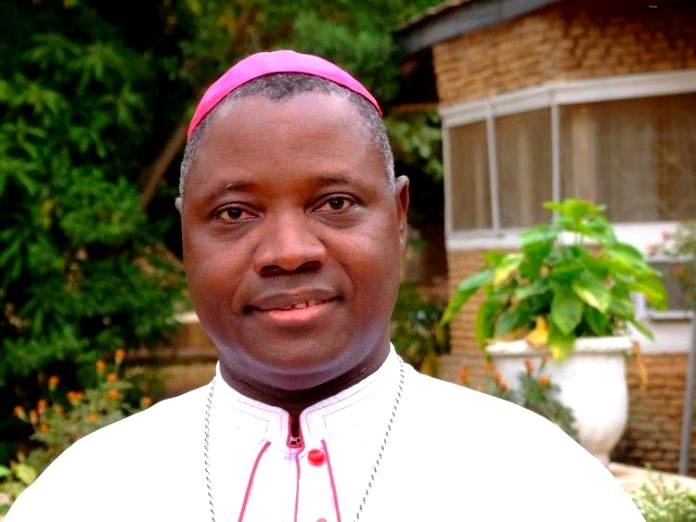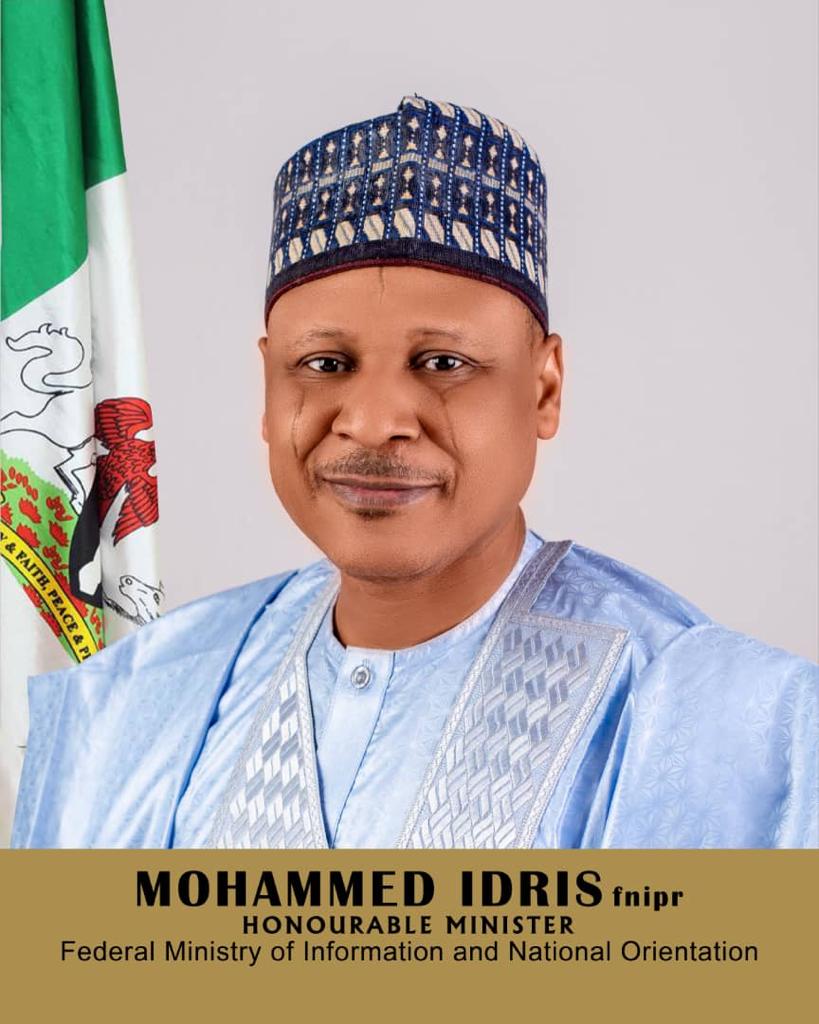 They said private newspapers couldn’t survive outside the Lagos/Ibadan axis, the economic and political artery of the country. Outside this axis, the North, the country’s economic and (Western) educational backwater, was, by the reckoning of these doubting Thomases, hopelessly barren, press-wise, precisely because it was the country’s economic and educational backwater.
They said private newspapers couldn’t survive outside the Lagos/Ibadan axis, the economic and political artery of the country. Outside this axis, the North, the country’s economic and (Western) educational backwater, was, by the reckoning of these doubting Thomases, hopelessly barren, press-wise, precisely because it was the country’s economic and educational backwater.
Then along came, first, Malam Kabiru Yusuf with Trust in 1998, followed by Mr. Sam Nda-Isaiah with Leadership six years later, and the theory of a press-hostile North hasn’t looked so valid anymore since.
About three weeks ago, May 1 precisely, Sam celebrated his 50th birthday. The celebration was marked by a well attended colloquium on the state of the nation chaired by General T.Y. Danjuma, arguably the greatest army chief the country has had.
The straight-talking general did not disappoint when, in his brief remarks as chairman, he chose to blame the Northern elites, more specifically the region’s governors, for fiddling while their region literally burned as a result of the apparent Boko Haram terrorism. Those remarks have since stirred heated controversy in the media and elsewhere.
As a prelude to his weighty remarks, he said he had worried that Sam’s baby might be still-born considering how it carried virtually no adverts in its early years. The general was right to have been worried given the fact that those who doubted the viability of the press, particularly the private press, in the North, had History on their side; between 1859, when the first newspaper in Nigeria, the Iwe Irohin, appeared in Abeokuta, and Independence in 1960, the vast majority of the country’s newspapers were within the Lagos/Ibadan axis, and these were almost all private, driven by the spread of Western education, increase in commerce and the rise of disaffection with colonial rule.
The longest running of these private newspapers, mostly published in Lagos, were the Daily Times, which first appeared in1926, the West African Pilot, first published in 1937 and flagship of a nationwide-wide chain Dr. Nnamdi Azikiwe was to eventually establish, and Tribune, founded in 1947 by the Awolowo political dynasty. Tribune, based in Ibadan, capital of the old Western Region, has been the only one left standing of all the pre-independence private newspapers.
The most commercially and professionally successful of the lot was the Daily Times founded by Sir Adeyemo Alakija and 32 other shareholders. Under the late legendary Alhaji Babatunde Jose who rose from the shop floor in 1941 to become its executive chairman in 1976, it became the biggest newspaper company in Africa, boasting no less than a dozen titles and making good money for its shareholders; the Daily Times alone had an average print run of around 200,000, while on a good Sunday the Sunday Times would do half a million copies. Naturally these huge print runs attracted huge sales and advert revenues which Jose used to diversify the portfolio of the company into commercial printing, property and entertainment.
Then in 1976, following a management crisis in the company in which Jose found himself at war with some of the newspaper’s top editors, the Federal Government appropriated 60% of the company’s shares. This action marked the beginning of the newspaper’s gradual decline. The decline was accelerated by the return of civil rule in October 1979 when some officials of the ruling National Party of Nigeria (NPN) under President Shehu Shagari, began to actively interfere with the editorial judgement of the newspaper’s management.
That decline eventually created a vacuum in the country’s Lagos/Ibadan dominated press. Nature, they say, abhors vacuum, and so before long Concord, The Guardian, Vanguard, Thisday and Newswatch news magazine and several other sundry publications, appeared to fill in the vacuum created by Daily Times’ decline. Almost all of them were published from Lagos.
However, even before Daily Times’ decline had started, The Punch had appeared in Lagos with a lively and entertaining variety of Journalism that threatened to undermine Daily Times’ dominance of the Nigerian press.
In sharp contrast to this active press scene along the Lagos/Ibadan axis between 1859 and 1960, the North was relatively very quiet. Of course it had the Nigerian Citizen, the Mail, the Daily Comet and several other fly-by-night publications, in the fifties. Above all, it had Gaskiya tafi Kwabo (1939), the country’s longest running vernacular newspaper and one of its most influential under the editorship of the legendary Alhaji Abubakar Imam. There were also other vernacular newspapers in Kanuri, Tiv, Nupe, Fulani and Igbira, etc.
All these were, however, either owned by the regional government (Citizen and Gaskiya and the other vernacular newspapers), by the ruling Northern Peoples’ Congress (Mail) or by proprietors outside the region (Comet). None of them was any match to their Southern counterparts in circulation.
Then along came the New Nigerian in 1966 and suddenly the North didn’t look so barren, newspaper-wise, anymore. Barely a fortnight after it was launched on January 1 by the region’s premier, Sir Ahmadu Bello, the army staged its first coup in Nigeria. The premier was its greatest casualty. Being on the ground, the newspaper reported his assassination like no other. From then on it never looked back as, arguably, the most reliable and authoritative newspaper in the country. And before long it came second only to Daily Times in circulation.
Trouble was, while the New Nigerian proved equal to its original task of defending the North, at least between its first ten and twenty years, the region still lacked a viable private press that could act independently of the government, especially as the command structure of the military regime meant there was a limit to how far the newspaper could carry out its original brief of defending the North within the context of Nigerian unity.
If the region lacked independent newspapers that could defend it, it was not for lack of trying by the region’s elites. Beginning from 1980 there were several such attempts, notably by Alhaji Hassan Sani Kontagora (Hotline news magazine in Kaduna), Alhaji Umaru Dembo (Telex in Zaria), Alhaji Hassan Adamu (Abuja Newsday), the late Alhaji Abidina Commassie (Today first in Kaduna before it eventually moved to Abuja), Alhaji Ismaila Isa (Democrat in Kaduna), the late Major-General Shehu Musa Yar’adua (The Reporter in Kaduna), General Ibrahim Babangida (Heritage and Chrystal news magazine in Abuja), Lieutenant-General Aliyu Mohammed (Nation in Abuja) and this reporter (Citizen news magazine in Kaduna).
Most of these lasted less than five years. Citizen, which arguably held the greatest hope of surviving partly because, like Newswatch, it was founded by four seasoned journalists – Kabiru Yusuf, Adamu Adamu, Bilkisu Yusuf and this reporter – lasted all of only four years, beginning from 1990. The two longest running of them all were Commassie’s Today (14 years, beginning from 1986) and Isa’s Democrat (12 years after he took it over in 1985 from the original founders).
In short, only Today of all the private newspapers in the North survived as a newspaper worthy of that name beyond 1999 when the current Republic was ushered in. This was enough to discourage anyone with even the deepest pockets to invest in the private media in the North.
Obviously it must have taken uncommon courage and determination for Sam, like Kabiru before him, to have plunged into the newspaper business, given this history of failure of the press in the North. That he has succeeded where even more seasoned journalists and investors with deep pockets have failed, is a tribute not only to his courage and determination.
It is also a tribute to him as one of the most powerful writers in the country. As anyone who has kept faith with his column, first in Trust, and now in his own newspaper, would testify, the man hates to beat about the bush; a blunter columnist is hard to find.
Pick any of his articles and you can see a young man impatient with leaders who make promises and fail to keep them. “There should be honour even among thieves,” he thundered in a piece he entitled “A GOVERNMENT OF LIARS”, when President Olusegun Obasanjo, who had promised transparency in governance, denied having a hand in an attempt to insert a dubious clause in a bill on the 2003 elections after it had been passed by the National Assembly. This was typical Sam.
Not only is he as blunt as they come, he has been one of the most consistent columnists in the land. Almost alone among the country’s columnists he has, for example, consistently argued that government has no business talking to terrorists whether they are of the MEND, OPC or Boko Haram variety. Again, he has consistently argued against the zoning and rotating elective offices, because he says it is the anti-thesis of democracy.
In an interview in his newspaper marking his birthday, he said he was a writer and a proprietor, not a journalist. That Leadership has survived its teething problems and is today one of the best in the country for its literary and printing quality and reliability, is evidence that he has been a successful proprietor.
In the interview, he said his ambition is to make Leadership, “the most authoritative newspaper in Nigeria.” Whether he achieves that ambition or not will depend on his re-examination of the business model he has used so far, obviously with great success. That model seems to be the Rupert Murdoch model of an ambivalent cosiness with the rich and powerful.
There is a lesson to learn from the well publicised predicament the old man has found himself in as the last of the great newspaper barons left standing.
Here’s a belated Happy Birthday to a promising proprietor and many more returns.



